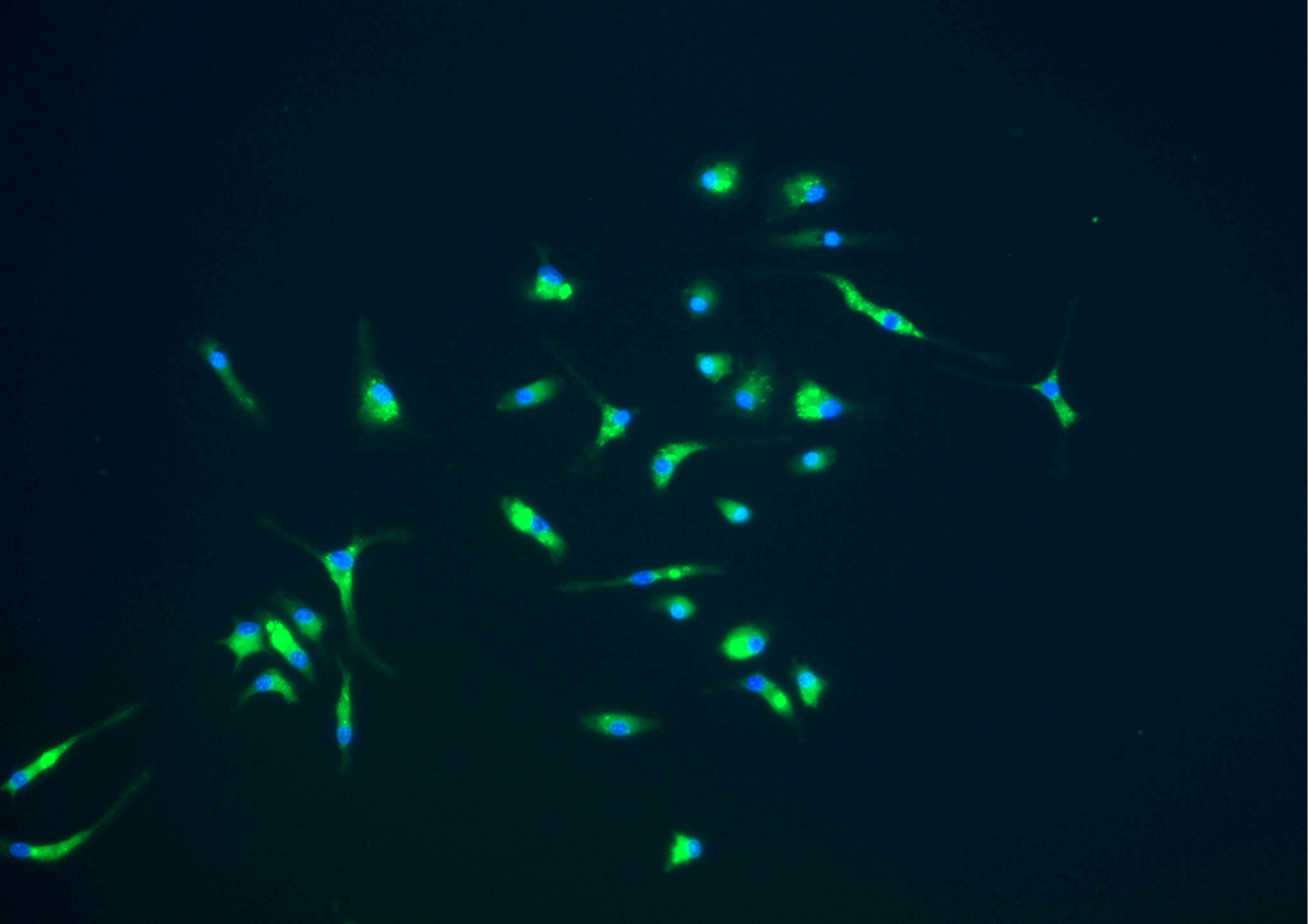Mice need microbes to forget their fears
Germ-free and antibiotic-treated mice have impaired fear extinction
Image by Alexas_Fotos from Pixabay
Halloween can be a fearful time for many. Ghosts, ghouls and goblins run around on Halloween night, spooking children and adults alike. But once we get used to them and realize that they do not pose a threat, the brain can get rid of, or extinguish, that fear memory. Now that it's November, you've probably forgotten all about any Halloween frights.
Neuroscientists have long been interested in the processes that allow the brain to eliminate fear memories, since problems with "fear extinction" are linked to post-traumatic stress disorder and other anxiety disorders. Now, a new study sheds more light on how the billions of tiny microbes in the body may play an important role in getting rid of fear.

NIH
The "microbiota" encompasses all the microorganisms that live on and in your body. The recent study looks at how getting rid of the microbiota affects fear extinction in mice. The researchers exposed mice to a tone paired with a shock, which after many exposures, leads the mice to create a "fear memory" and freeze in response to the tone. Fear extinction then happens when the mice are repeatedly exposed to the tone without the shock and eventually forget the fear memory. To examine the role the microbiota play in fear extinction, researchers treated adult mice with antibiotics to reduce their microbiota or used mice that had been microbe-free since birth. Although antibiotic-treated and microbe-free mice created a fear memory as well as the control mice, they continued freezing even during extinction, meaning they were not able to get rid of the fear memory.
When researchers looked at the brains of the antibiotic-treated mice, they found that there were significant differences in the expression of genes and of neural activity in the cells of the medial prefrontal cortex, a brain area critical for fear extinction. Among other changes, researchers found that changing the microbiota led to alterations in microglia, the immune cells of the brain. Microglia eat up dendritic spines, which are small protrusions off of neurons that receive input from other neurons. The researchers identified that there was more spine elimination in the antibiotic-treated mice, suggesting that learning might be affected by an imbalance in spine elimination due to microglia alterations.
When researchers analyzed the brain fluid of these mice, they found that there were four chemicals that were decreased in the microbiota-less mice. Researchers think that these chemicals might be an important way that microbes influence brain function. These findings shed new light on the ways that the microbiota can extinguish fear.





















